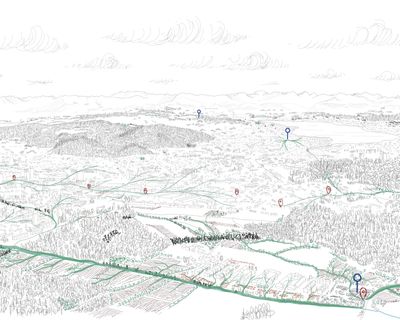Landscapes of Solidarity: Reassembling Neighbourhoods and Agroecology Through Zurich's SolawisAmin El-Didi, Caio Fialho, and Nima Tabrizi
“… They have a piece of land under their feet,
with all that it can give to a hard worker,
to a loving sower, after energetic waiting:
potatoes and cabbages, onions and beans, lettuce and beets.
But more than that.
The entry into the workshop of the earth
is return to nature and into a natural healthy being.”
Report on the 3rd year of operation of the allotment gardens in Zurich.
SozArchiv. 1917.

From the mediaeval manor, to the Soviet kolkhoz system of linking farm and factory, or the attachment of particular customers to the stand of a particular farm at an open market, human history is replete with examples of connections between nonfarmers and the people and lands that feed them. Connections that have been increasingly severed over time, as the free market not only separates people along the binaries of producer and consumers, but also creates landscapes of monocultures catering to a global demand. The family farm, touted as a cornerstone of Swiss tradition, has been facing increasing pressures, from contentious policies to an ever-increasing market demand. While the cultural landscape continues to be thought of as a separate category of islands maintained for leisure and biodiversity in the sea of intensive agriculture of the Mittelland.
Under the challenges faced by the agricultural sector, such as a decreasing number of farms, economic difficulties, and ongoing environmental transformation, we believe an alternative future can be fostered through embracing the practices of community-supported agriculture. We then raise the question: what ecological and social landscapes are created from a food system driven by solidarity rather than by the economy?
All images are taken by Caio Fialho, Amin El-Didi, & Nima Tabrizi unless mentioned otherwise.